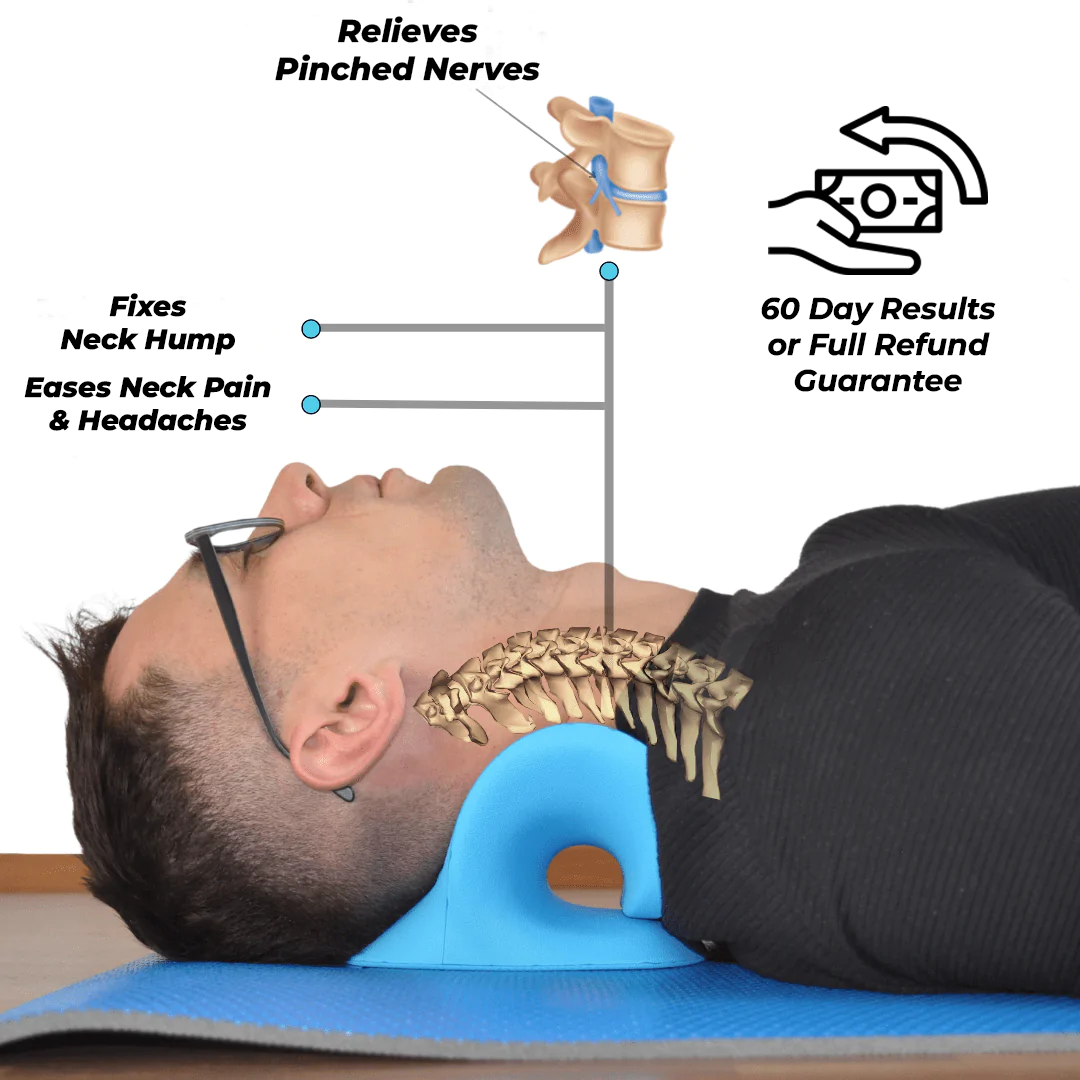Just How the Neck Cloud Can Help with Persistent Neck Discomfort and Stiffness
Just How the Neck Cloud Can Help with Persistent Neck Discomfort and Stiffness
Blog Article
The Influence of Stress on Neck Discomfort: Techniques for Lowering Tension and Pain
In today's busy globe, it's clear that tension has actually come to be a common factor in the onset and exacerbation of neck discomfort. The complex relationship between anxiety and muscular tissue stress frequently leaves people seeking alleviation from the pain that occurs. By discovering targeted strategies targeted at reducing tension and promoting relaxation, one can begin to deal with the root triggers of neck discomfort and work in the direction of a much more balanced state of health. Join us on a journey to decipher the effect of stress and anxiety on neck pain and discover effective methods to ease pain and improve total lifestyle.
Comprehending Stress-Related Neck Pain
Neck discomfort is an usual problem that can often be connected to anxiety. Stress-related neck pain can show up as tension, rigidity, or discomfort in the neck and shoulder location. The connection between stress and neck pain lies in the body's physical reaction to tension, which can result in muscle mass stress and tightness in the neck muscular tissues. Persistent anxiety can lead to persistent neck discomfort and worsen existing conditions like cervical spondylosis or muscular tissue strains.

Identifying Common Stress Locations
Regularly experienced by people under anxiety, tension areas in the body can give valuable insights into the physical manifestations of psychological stress. One typical tension area is the neck, where stress and anxiety typically materializes literally. Stress headaches, stiff neck muscular tissues, and limited variety of movement are common signs of stress-related neck tension. The shoulders are one more typical location where stress builds up. Anxiety can create the muscular tissues in the shoulders to tighten, bring about discomfort and pain. Furthermore, the upper back is prone to tension accumulation, especially in people that experience persistent stress. Poor posture and prolonged sitting can intensify stress in this area. The jaw is likewise an usual area for stress-related tension, as many individuals squeeze their jaw or grind their teeth when emphasized. Understanding these common stress locations can assist people recognize the physical signs of anxiety and take steps to address them prior to they rise into chronic pain or discomfort.
Implementing Leisure Methods
To effectively manage stress-related tension in the body, executing relaxation techniques is essential. Relaxation methods are beneficial devices for lowering Extra resources neck pain triggered by stress. Deep breathing exercises can assist relax the mind and unwind stressful muscle mass in the neck and shoulders (neck cloud). Practicing mindfulness meditation can likewise be beneficial in alleviating anxiety and advertising leisure. Modern muscular tissue leisure, where you systematically stressful and after that loosen up various muscle mass teams, can launch built-up stress in the neck area. Furthermore, activities like yoga exercise and tai chi include both physical motion and relaxation, making them efficient practices for lowering anxiety and neck pain. Taking regular breaks throughout the day to stretch and unwind can stop muscle mass stiffness and tension from collecting. By integrating these leisure techniques into your everyday regimen, you can assist manage stress levels, decrease tension in the neck, and alleviate discomfort connected with stress-induced neck discomfort.
Incorporating Self-Care Practices
Including self-care techniques is vital for preserving overall wellness and handling stress-related neck discomfort successfully. Taking part in normal exercise, such as mild stretching exercises or yoga exercise, can assist alleviate tension in the neck and shoulders. Practicing excellent posture throughout the day and taking regular breaks from extended sitting or display time can likewise avoid stress on the neck muscles.
Moreover, prioritizing appropriate rest and developing a constant sleep regimen can add considerably to minimizing anxiety degrees and advertising relaxation. Producing a calming going to bed routine, such as checking out a book or taking a cozy bath, can help prepare the body and mind for restful sleep. In addition, keeping a well balanced diet rich in nutrients and staying moisturized can sustain total wellness and decrease swelling that might exacerbate neck my explanation pain.
Including mindfulness practices, such as deep breathing workouts or reflection, can help manage stress and anxiety and promote relaxation. Requiring time for oneself, taking part in leisure activities, and setting limits to protect personal time are additionally crucial elements of self-care that can add to lowering anxiety and alleviating neck discomfort.
Looking For Specialist Assistance
How can individuals successfully deal with persistent neck pain that is influencing their day-to-day life and well-being? Seeking specialist aid can be a critical step in handling and easing neck pain.
Chiropractic specialists specialize in spinal adjustment strategies to improve placement and decrease tension in the neck area. Physical therapists offer targeted workouts and stretches to strengthen muscle mass, improve flexibility, and boost overall neck feature. Orthopedic specialists can offer innovative medical interventions such as shots or surgical alternatives for extreme situations of neck pain.
Final Thought

Stress-related neck discomfort can manifest as tension, tightness, or pain in the neck and shoulder area. The link in between stress and anxiety and neck pain exists in the body's physiological action see this here to anxiety, which can result in muscle stress and rigidity in the neck muscular tissues. Stress migraines, tight neck muscle mass, and limited range of activity are typical signs and symptoms of stress-related neck stress. By including these leisure techniques into your day-to-day routine, you can aid handle tension degrees, decrease tension in the neck, and relieve discomfort connected with stress-induced neck discomfort.

Report this page